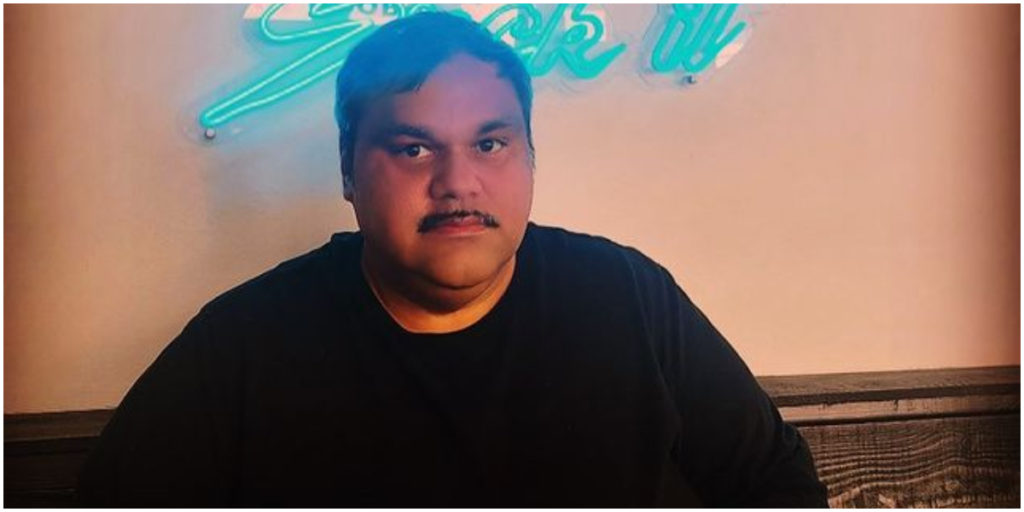
It’s turning out to be a good year for Pakistani filmmaker Mo Naqvi. Last month, he was inducted into the Academy of Motion Picture Arts and Sciences, which conducts the renowned Oscars. Now he has also received recognition in the Emmy Awards, with his docu-series Turning Point: 9/11 and the War on Terror in the running for ‘Outstanding Politics and Government Documentary’.
Mo worked as a co-executive producer on Turning Point. Produced by Netflix, the five-part series delves into the events of September 11th and the subsequent war between the United States and Afghanistan.
Turning Point is only the latest in Mo’s film career that spans over a decade and has been recognized with various accolades, including a previous Emmy nomination. Mo has directed nine documentaries and has 10 producer credits to his name.
View this post on Instagram
2002: His first credit as a producer was on the 2003 television documentary Terror’s Children, which also happened to be the first film that Sharmeen-Obaid Chinoy worked on. Produced by the New York Times, Terror’s Children took a look at how Afghan children had been impacted by the War on Terror. This set the trajectory for Mo’s career, who has since dedicated himself to exploring social justice issues.
2004: In 2004, Mo directed and produced Shame for Showtime. The documentary was about Mukhtaran Mai, who was raped as revenge for a perceived insult by her tribe on the order of a local tribal council. Mukhtaran Mai went onto take a stand against her rapists and has become a well known human rights activist in Pakistan. Shame looked into the events leading up to her rape and the ways in which she took charge of the situation afterwards.
2012: In 2012 Mo profiled another inspiring Pakistani woman; he directed Shabeena’s Quest, a documentary short produced by Al Jazeera. The film was about a school principal fighting for young girls’ right to education under Taliban presence in Northern Pakistan.
2014: Throughout his career, Mo has shown that he is unafraid to ask difficult questions. In 2014, he directed Pakistan’s Hidden Shame, a documentary set mostly in Peshawar that explores the rampant sexual abuse of young boys in Northern Pakistan. The film prompted then prime minister Imran Khan to open a shelter for homeless boys in Khyber Pakhtunkhwa.
2015: Mo has been particularly interested in the intersection of politics and religion. In 2015, he directed Among The Believers, a documentary about the increasing religious and extremism in Pakistan. The film focuses in particular on Maulana Abdul Aziz who was, at the time, heading Islamabad’s notorious Lal Masjid. Among The Believers explored how Aziz’s network of religious seminaries served as a means of disseminating his ideology. The film is banned in Pakistan.
2017: In 2017, Mo directed and produced Insha’allah Democracy, which chronicled Mo’s attempt to decide who to vote for in the 2013 general elections. In the process, the documentary painted an intimate portrait of Pervez Musharraf.
2020: Mo once again released worked that showed the religiosity of politics in Pakistan. He directed and produced The Accused: Damned or Devoted, which is set against the backdrop of the 2018 general elections. The Accused looks into Pakistan’s contentious blasphemy law and profiles the late cleric Khadim Hussain Rizvi, who ran for the elections with his party the Tehreek-e-Labaik Pakistan. Rizvi was known for his staunch support of the blasphemy law and the film examines the impact his message had on the cases of people in jail on blasphemy accusations.
Aside from his documentary work, Mo has also worked on several fiction films. His most recent fiction work was the short film Happy Things in Sorrow Times, based on a book by Tehmina Durrani.
Mo has received international recognition for his many projects, having shown his work at the Tribeca Film Festival, the Sundance Film Festival, and the Toronto International Film Festival, to name a few. He has worked with the BBC, CNN, and Channel 4 UK, amongst others. His films have won countless awards, including two Amnesty International Human Rights Awards.





